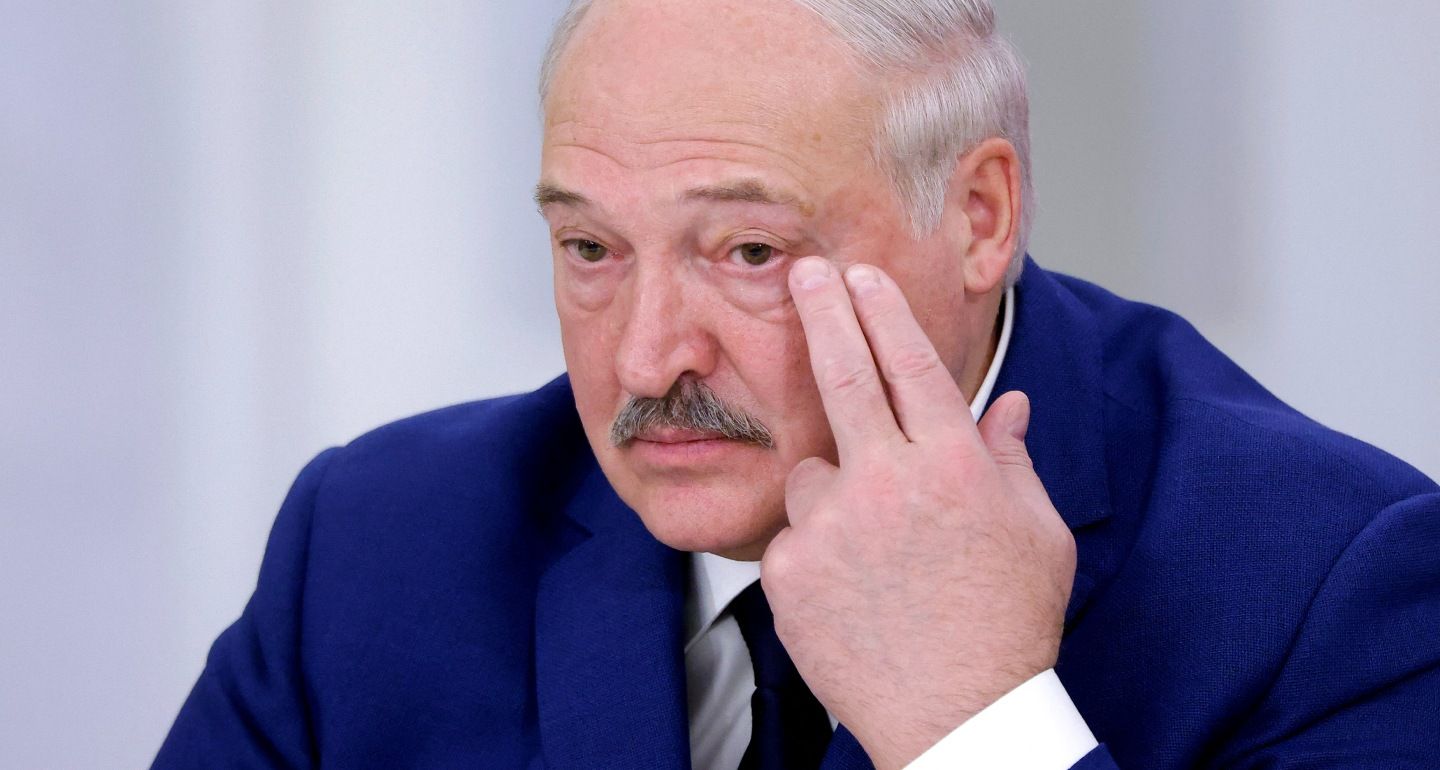Contested Belarusian leader Alexander Lukashenko spied an opportunity when talks over ending the war in Ukraine got under way earlier this year between the United States and Russia. Predictably, the talks have subsequently stalled because of the Kremlin’s maximalist demands, as well as qualms in Europe over U.S. President Donald Trump’s desire to reach a quick deal with Moscow at almost any cost. As the diplomatic push slowly dies on the vine, Belarus could end up in an even worse position than it is now.
Lukashenko likes to talk about the negotiations on Ukraine as though his main priority is to get personally involved, or even for talks to be physically moved to Belarus. During a March visit to Russia, Lukashenko urged Russian President Vladimir Putin to bring Trump and Ukrainian President Volodymyr Zelensky to Minsk.
However, with negotiations under way in Saudi Arabia, Lukashenko looks to be peddling a fantasy. This sort of rhetoric actually has little in common with Minsk’s real goals as a new phase in the Ukraine conflict begins. Minsk wants to preserve its profitable relationship with Moscow, whatever the outcome of talks.
Russia currently sees Belarus as an important outpost in the war it’s waging with the West, and, accordingly, it makes sure that ample financing continues to flow to Minsk. At the same time, Moscow’s focus on Ukraine means it has had less time to pursue the forcible integration of Belarus. This sort of halfway house has allowed Lukashenko to preside over one of the friendliest periods in Russia–Belarus relations of the last thirty years.
Victory for either side in the Ukraine war would destroy this fragile balance. A win for Russia might encourage the Kremlin to pursue new political or military adventures that would undermine Belarusian sovereignty. Ukraine’s victory, on the other hand, would shake the foundations of the Russian regime, threatening Moscow’s support for its Belarusian satellite.
Even a robust peace deal and a rapid normalization of ties between Russia and the West would put Lukashenko in a difficult position. If Belarus loses its importance as an outpost on Russia’s Western flank, it will need to swiftly find another way to justify its Russian subsidies.
If the opposite were to happen, and the war in Ukraine were to escalate, the consequences could be even more disastrous. Such a scenario would mean Belarus could be drawn into the fighting (either as a theater for military action in a war between Russia and NATO, or a new front in the fighting in Ukraine).
Even the continuation of the status quo, however, throws up problems for Minsk. The economic benefits it reaps from the current situation are gradually fading. A slowing Russian economy is weakening demand for Belarusian goods, while Western sanctions mean alternative markets are difficult to reach. Belarus’s oil refineries have—by Lukashenko’s own admission—already become loss-making, which means he has been forced to seek bigger discounts on Russian crude.
A ceasefire in Ukraine and a freezing of the conflict along the current line of contact would likely be the best outcome for Lukashenko. Russia would need to rearm and maintain a large army, ensuring Belarus would continue to benefit from major Russian defense orders. A ceasefire would also pave the way for a partial lifting of Western sanctions. Many sanctions on Belarus were imposed simultaneously with sanctions on Russia—which means they could also be lifted simultaneously (without any particular effort by Lukashenko). More access to the West would help the Belarusian economy compensate for the growing stagnation of the Russian market.
At the same time, the rapprochement between Russia and the United States has also given Lukashenko the political cover to make his own overtures to Washington. In other circumstances, that might have irritated the Kremlin. But the dialogue between U.S. and Russian officials means Lukashenko does not need to justify why he might be talking to Washington about a possible swap of political prisoners in exchange for sanctions relief.
Indeed, Lukashenko has been able to use Washington’s temporary interest in the region to pursue modest goals. Minsk released three political prisoners—including one U.S. citizen—to U.S. Deputy Assistant Secretary for Eastern Europe Christopher Smith, who traveled to Belarus for talks with Lukashenko in February. Nevertheless, if the negotiations between Russia and the United States falter and Trump’s attention wanders, then Washington will become far less interested in Minsk’s gesture politics—reducing the chances of sanctions being lifted.
In any case, the deepening rift between the United States and Europe would deprive Minsk of most of the benefits of a possible deal with Washington. After all, if the United States were to lift sanctions on Belarus, it would not have much of an effect until the European Union did the same. Most of Belarus’s trade was routed through Europe, and it is the EU that blocks Belarusian banks from the SWIFT international payments system.
The ongoing disagreements between Europe and the United States mean Brussels is taking an increasingly hawkish position over the war in Ukraine. The mood in the EU is more and more supportive of maintaining tough sanctions on Moscow (and, as a consequence, on Minsk). After all, it would be strange to prepare for war with Russia while simultaneously considering a thaw in relations with Belarus. In fact, things appear to be going in the opposite direction: in March, the EU imposed another round of sanctions on Belarus.
The bottom line is that Lukashenko has a small window in which to exploit the Trump administration’s interest in making deals in the region. But hopes for a major reset in relations between Belarus and the West are unjustified. On the contrary, it seems far more likely that Belarus will be progressively squeezed between an increasingly militarized Europe and a stagnating Russia that is bogged down in war.



